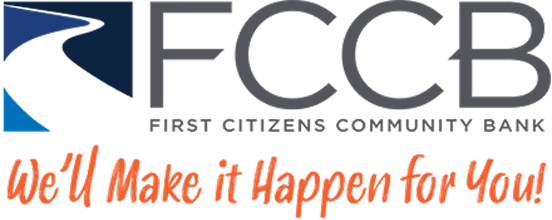The Comprehensive Guide for First-Time Homebuyers
Are you searching for a new home as a first-time buyer in Pennsylvania, Delaware, or New York? It can be an intimidating process to navigate. However, whatever challenges you face, it doesn’t mean you won’t be successful in your quest to buy your first home. We created this comprehensive guide to help you through the homebuying process step by step, from figuring out how much you can afford to spend to how to apply for a mortgage loan. If you have specific questions about your own situation, just reach out to our mortgage lending team and we’ll be happy to help.

What does the homebuying process look like?
Let’s start with an overview of the homebuying process. If you’ve never bought a home, this step-by-step breakdown will help demystify the process.
- Take stock of your finances to find out how much home you can afford.
- Make a wish list of what you want in a home.
- Get pre-qualified for a mortgage and research the best home loan options for you.
- Meet with a few different realtors and choose one to work with.
- Make an offer on the home of your choice and get an inspection.
- Complete the mortgage application and close on your new home.
As you can see, the entire process consists of only a few steps. We’ll take a closer look at each of these steps in the following sections. Careful planning will help ensure the smoothest possible homebuying journey.
How much house can you afford?
To avoid future disappointment, start the homebuying process by being clear about how much you can afford to spend on a home. Remember that, in addition to your monthly mortgage payment, you’ll need to leave room in your budget for repairs, routine maintenance, and furnishings.
One of the easiest ways to figure out how much you can afford is to get pre-qualified for a mortgage loan. It’s free and doesn’t take much time. You share basic financial information with your lender such as your income, credit score, and total monthly debt payments. Your lender will then provide you with the loan amount and interest rate you could get on a mortgage. While not a guarantee, pre-qualification letters are usually good for a certain period of time, provided you complete the rest of the mortgage application process successfully. Many real estate agents will ask to see a pre-qualification letter before they take you to see homes, and it also makes you a more competitive buyer in the eyes of sellers.
Understanding Debt-to-Income (DTI) Ratio
DTI is an important factor used by lenders to determine how much you can afford to borrow. You can calculate your own DTI by adding your monthly debt payments (such as car loans, student loans, credit card balances, and any other debts) and dividing the total by your gross (pre-tax) monthly income. A DTI of 28% or less is ideal. If yours is higher than that, you may want to take some time to pay down your debt until you reach that 28% DTI sweet spot before buying a home.
Making a Down Payment
While there are mortgage loan options with a lower down payment, you should aim to put 20% down if possible. A 20% down payment offers the following benefits:
- Helps you qualify for the best loan terms and interest rate
- No Private Mortgage Insurance (PMI) payment, which will save you money–about 1% of your mortgage balance annually
- Lower loan principal, which reduces your monthly payment amount and the total interest you’ll pay over the life of the loan
- Start with 20% equity in your home, which provides an “equity safety net” in case home prices drop soon after your purchase

Scheduling a Professional Home Inspection
Home inspections are not a requirement, but we highly recommend you schedule one after having an offer accepted. A professional home inspector will conduct a thorough examination of the home and provide a report on the condition of all major systems, appliances, and more. This will alert you to any major, and potentially expensive, problems, before you buy the home so you can negotiate or walk away. The cost of a home inspection varies depending on the size of the house, but you can expect to spend a few hundred dollars.
Budget for closing costs.
In addition to your down payment, you’ll need to bring enough money on Closing Day to cover the costs of completing your home purchase. You’ll receive a breakdown of closing costs shortly before the scheduled closing date. This may include some or all of the following:
- Legal fees
- Mortgage taxes
- Transfer taxes
- Recording fees
- Title insurance
- Prorated property tax and HOA fee (if applicable) payments to the seller
- Agent commission (if not paid by the seller)
Plan For Escrow
If you decide to have your mortgage servicer pay your home insurance premiums and property taxes, they will add a certain amount to your monthly mortgage payment. This goes into an escrow account until tax and insurance payments are due. Keep in mind that if your property taxes or insurance premiums rise, your monthly mortgage payment will rise as well so that your escrow account stays fully funded. This is why it’s best to spend less than the maximum you can afford. Having enough margin in your budget will make life easier and less stressful.
Still not sure how much you can afford to spend on your first home? Check out the affordability worksheet on page six of this home buying packet.

Create a homebuying wish list
Now that you have a better understanding of how much you can comfortably afford to spend on a home, it’s time to get clear about your must-haves and nice-to-haves by creating a homebuying wish list. Depending on your situation (single, couple, family with kids), you may want to consider:
Location
- Neighborhoods
- Public schools
- Walkability
- Public transit
- Access to highways and an airport
- Amenities like shopping, restaurants, entertainment
- Hospital and healthcare facilities
Features of the House
- Number of bedrooms
- Number of full and half bathrooms
- Home office or gym space
- Driveway and garage
- Basement space
- Backyard
- Porch or patio
- Kitchen size and layout
- Fireplace
- Condition (fully renovated or needs updating)
In the course of your search, you may have to compromise in one or more areas. Share with your buyer’s agent what your must-haves are, and then everything else is a nice-to-have but could be done without to get your must-haves in your price range.
Check out our list of local realtors in Allegany County, NY; Berks County, PA; Bradford County, PA; Kent County, DE; Lebanon County, PA; New Castle County, DE; Potter County, PA; Schuylkill County, PA; and Tioga County, PA.
Update your budget for homeownership
Hopefully, you already have a budget for your monthly living expenses, savings goals, and discretionary spending. If not, you’ll definitely need to start budgeting in your new life as a homeowner. A good budget should be a flexible roadmap for your life, helping you feel in control of your spending and on track to meet your longer-term goals. If you’re not budgeting already, there are a variety of spreadsheets, apps, and other tools available online.
Once you’ve had an offer accepted on a home, it’s time to update your budget for homeownership. Estimate or record the following costs:
- Moving expenses
- New furniture or appliance purchases
- Occasional repairs (how old is the house and what is its general condition?)
- Routine maintenance (pest control, lawn maintenance, HVAC systems, plumbing)
- New monthly expenses (utilities, water bill, HOA fees, etc.)
A good rule of thumb is to budget one percent of the price you paid for the home to cover repairs. You can break this amount into monthly deposits to your savings account so you’ll be prepared for future repairs.
Find the right mortgage or consult with a lender
If you’re not sure where to start with your first-time homebuying journey, we make it as easy as possible. FCCB is proud to offer a first-time home loan designed specifically for first-time buyers. We also offer VA loans for active-duty servicemembers and veterans, as well as FHA loans with a lower down payment option. Contact one of our Mortgage Experts to learn more about the best home loans for you and start the pre-qualification process. You feel like you’re ready to jump into the process, you can apply for a home loan online in 20 minutes or less!



